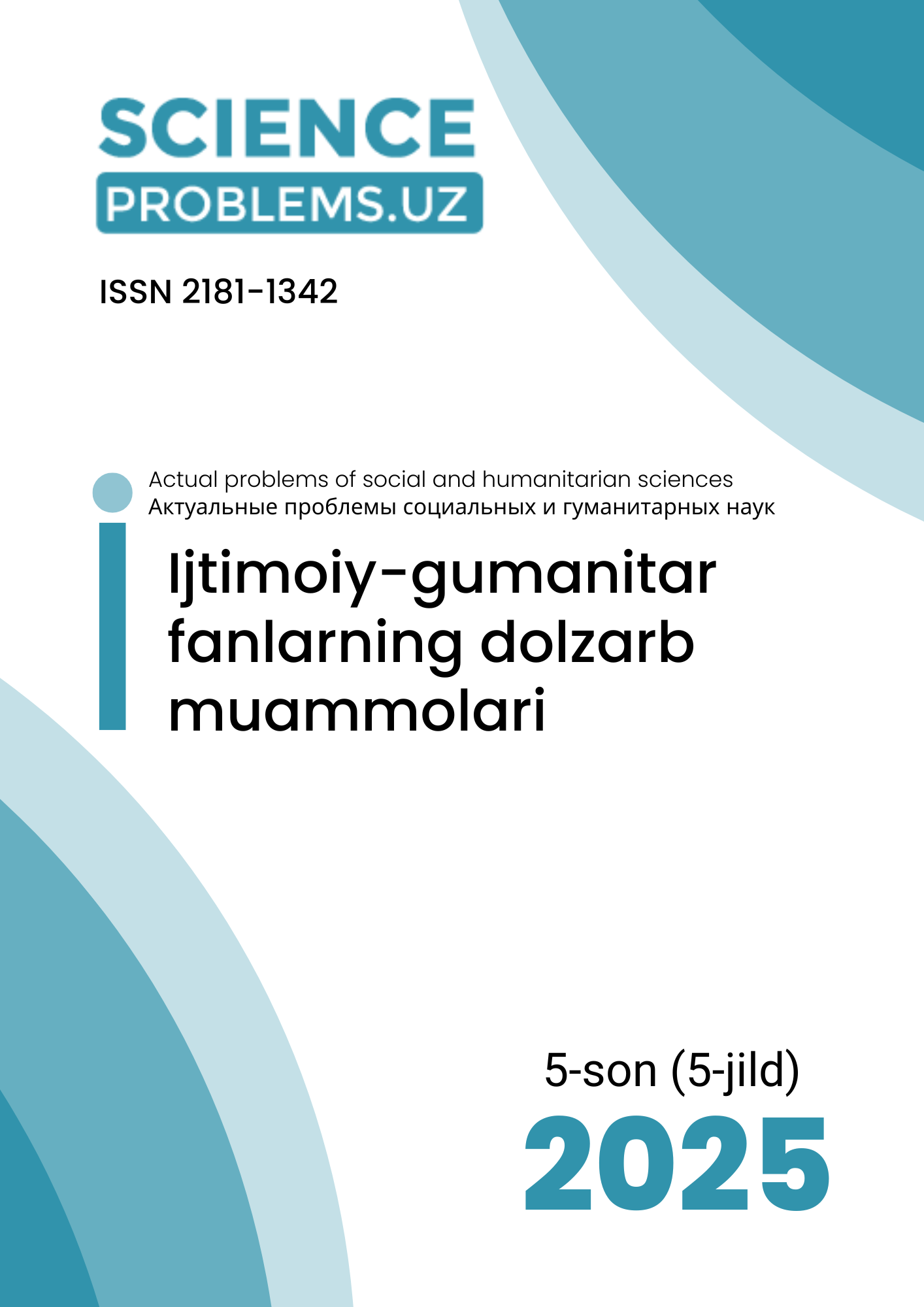A COMPARATIVE STUDY OF THE STRUCTURAL-SEMANTIC FEATURES OF ENGLISH AND UZBEK WORD COMBINATIONS
DOI:
https://doi.org/10.47390/SPR1342V5I5Y2025N50Keywords:
word combinations, collocations, structural-semantic features, English-Uzbek contrast, idiomaticity, agglutination, translation challenges.Abstract
This study presents a comparative analysis of the structural-semantic features of word combinations in English and Uzbek, focusing on their formation, idiomaticity, and cultural-linguistic influences. English, as an analytic language with fixed word order and extensive phrasal verb usage, contrasts sharply with Uzbek, an agglutinative language that relies on suffixation, postpositions, and auxiliary verb constructions. The research examines key differences in syntax, morphology, and semantic transparency, highlighting challenges in translation and second-language acquisition. While English favors idiomatic expressions with opaque meanings (e.g., "kick the bucket"), Uzbek word combinations tend toward literalness, though Persian- and Russian-derived idioms exist (e.g., "dil kushodasi" [heart’s joy]). The study also explores how cultural and historical borrowings shape collocational patterns in both languages. By systematically comparing these features, the paper aims to enhance cross-linguistic understanding, aiding translators, linguists, and learners in navigating the complexities of both systems. Findings underscore the necessity of context-aware learning strategies to master these divergent structural-semantic frameworks.
References
1. Chomsky, Noam. Syntactic Structures. Mouton, 1957.
2. Crystal, David. The Cambridge Encyclopedia of the English Language. Cambridge University Press, 2003.
3. Popova, Zinaida, and I. A. Sternin. Semantics: A Coursebook. Cambridge University Press, 1997.
4. Saidov, Rustam, and Shukhratbek Tursunov. Uzbek Syntax and Grammar: A Comparative Study with Turkic Languages. Tashkent University Press, 2007.
5. Kachru, Braj B. The Alchemy of English: The Spread, Functions, and Models of Non-native Englishes. University of Illinois Press, 1986.
6. Yusufov, Anvar. Contrastive Linguistics: A Comparative Study of the English and Uzbek Languages. Tashkent, 2010.
7. Bahromov, Shokhrukh. The Syntax of Uzbek: A Typological Perspective. Tashkent State University, 2015.
8. Jackson, Howard, and Etienne Zephir. Word Combinations and Idiomatic Expressions: A Linguistic Analysis. Routledge, 2011.
9. Mansurov, Mukhammad. Cultural Nuances in Uzbek Phraseology. Tashkent University Press, 2012.
10. Bauer, Laurie. English Word-formation. Cambridge University Press, 1983.








